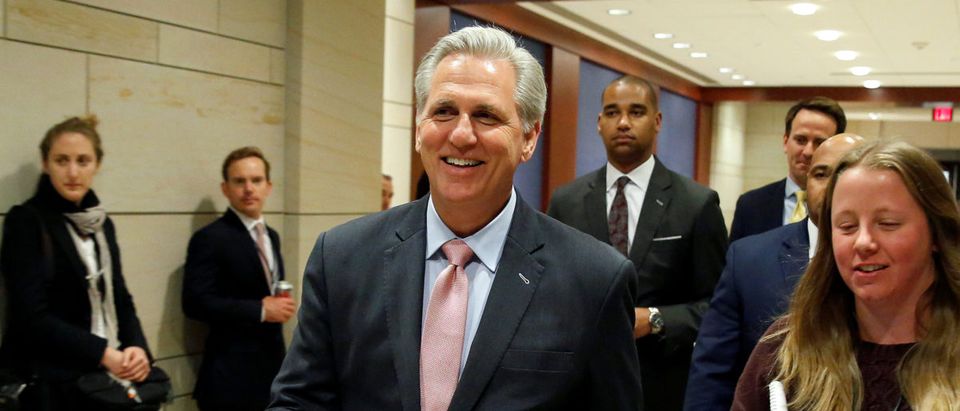Republicans currently hold an edge on the congressional ballot test for the first time since 2014 according to a new NPR/Marist poll.
“With the 2022 Congressional Midterm Elections a little more than six months away, U.S. registered voters give Republicans (47%) the advantage over the Democratic candidates (44%) nationally” reads a press release from Marist. “On the economy, controlling inflation, crime, national security, and gun policy, pluralities of Americans perceive the Republican Party to be the party who would be better able to handle these issues. Americans express these views as President Joe Biden’s job approval rating remains upside down, and his ratings on the economy and the crisis in Ukraine take on water.” NPR/Marist surveyed 1,162 registered voters and has a margin of error of 3.7 points. The poll was released on Friday.
Polling also revealed that independents favor Republicans by 7 points on a generic congressional ballot. 45% of independents said they would support Republicans while only 38% would support Democrats. Notably, 10% are undecided. (RELATED: GOP Holds Largest Lead In Early Midterm Election Preferences In 40 Years, Poll Shows)
New NPR/Marist poll is remarkable
Republicans lead Democrats on generic Congressional ballot among these groups:
🚨 Parents with children under 18: 60% choose GOP; 39% Democrats
🚨 Latino voters: 52% GOP; 39% Dems pic.twitter.com/9QxnZsZ54D
— Christy Lewis (@Cavalewis) April 29, 2022
Key findings in the demographic breakdown show that 52% of Latino voters favor Republicans and parents with children under 18 years old favor Republicans over Democrats by a 28-point margin, (60% to 32%).
When respondents were asked which party they thought would do a better job dealing with the economy, Republicans led Democrats by a 16-point margin, (42% to 26%).
Also noteworthy were results showing that among national adults, Republicans are thought to be more trustworthy on major issues like national security, taming inflation, “gun policy,” and crime.
However, this survey also indicates that President Joe Biden’s job approval rating has increased from 39% in March to 41% in mid-April. Still, by a two-to-one margin, Americans are more likely to strongly disapprove of his job performance 37% than strongly approve 16%.


